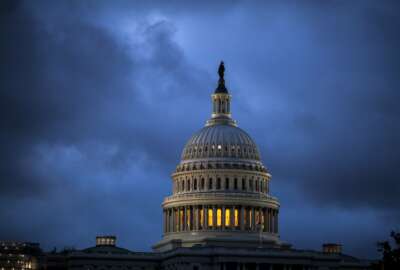Why is being a federal civil servant sometimes like being a beekeeper in a nudist colony?
Short answer: Both occupations have certain perks, but there are downsides, too. Plus, outsiders really don’t understand what makes either of them tick.
The upside of working for Uncle Sam is stability, plus the chance to serve and protect. Sounds corny, but it’s true. Some things are unique and exclusive to government.
If you chose federal service, you know that it’s a good job, and often provides the chance to serve and protect. Plus there are some opportunities not offered by the private sector. The first man on the moon was a federal employee. The first folks to make it to Mars may very well work for NASA, too. That’s the good part of being affiliated with the government.
The downside is that somebody is always out to get you. Or so it seems. They rarely succeed, but the fact that they keep trying is nerve-wracking. And they only need to win once.
Long-time federal workers are accustomed to politicians of both parties going after their pay, retirement and 401(k) plan.
Feds didn’t get their January pay raises in 2011, 2012 and 2013. And there were also government shutdowns and furloughs that cut pay 20 percent for those locked out of their jobs. And that was under an administration that had vowed “to make federal employment cool again.”
This year, under a new administration, both Congress and the White House took aim at the federal retirement program. There were serious plans to increase employee contributions to the FERS program while cutting future benefits under it. And that was just for starters. Although there was no effective date for any of the planned benefit cutbacks, some feds said they would retire in October, just to be sure.
What happened, as usual, is nothing. The House accepted the Senate budget plan. The House would have cut $32 billion from future federal retirement benefits. The Senate instructed the tax-writing Senate Finance and House Ways and Means committees to add $1.5 trillion (with a “T”) to the deficit to pave the way for the new GOP tax “reform” proposal.
Before the retirement threats, which were real enough at the time, there was talk of yet another shutdown. President Donald Trump said it might be a good thing. The media was busy in March and April explaining why a shutdown was likely and what it would mean to members of the public. The threat disappeared only to resurface again last month. The new deadline for action (or shutdown) is early December.
Odds are there won’t be a shutdown. But it could happen. What is certain is that most of the same-old-same-old threats to the federal retirement package are likely to resurface next year. And workers and retirees only have to lose one round on Capitol Hill to be back on unpaid furloughs, delayed-pay shutdowns or to the prospect of working longer, and paying more, for a reduced retirement benefit.
Nearly Useless Factoid
By Michael O’Connell
When Houston got its current Major League Baseball franchise in 1962, the team was known as the Houston Colt .45s.
Source: Wikipedia
Copyright
© 2024 Federal News Network. All rights reserved. This website is not intended for users located within the European Economic Area.
